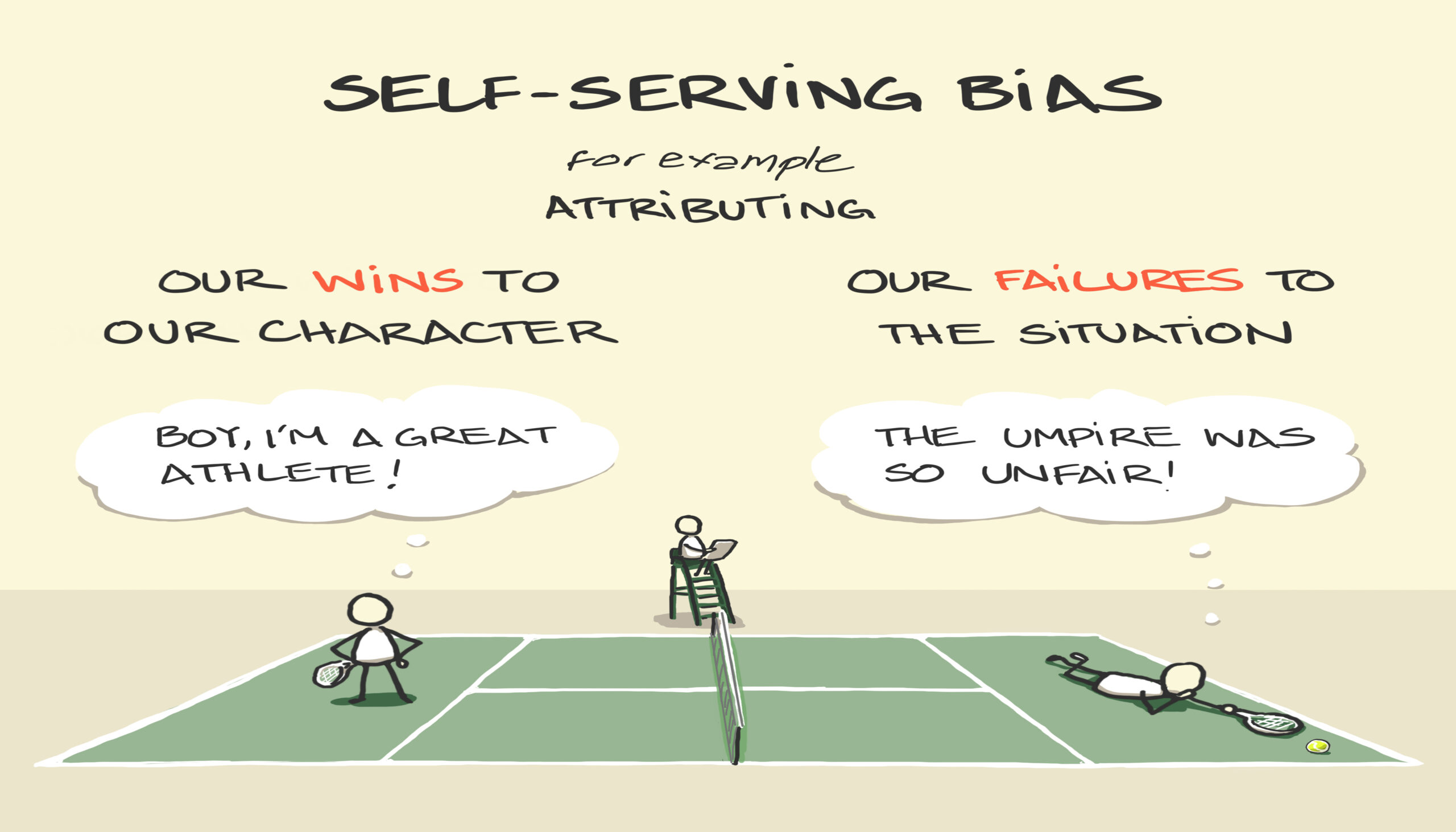The self-serving bias is a cognitive bias that influences the way people attribute success to their own character or abilities while attributing failure to external factors or bad luck. In other words, when individuals experience positive outcomes, they tend to credit themselves, but when they face setbacks, they often place blame on external circumstances or other people.
Explanations:
The self-serving bias can be seen as a self-protective mechanism that helps maintain self-esteem and protect one’s self-image. People naturally want to view themselves in a positive light and maintain a positive self-concept.
Examples:
Success at Work: When someone receives a promotion, they might attribute it to their hard work, intelligence, and skills. But if they are passed over for a promotion, they might blame office politics or unfair decisions.
Academic Performance: A student who earns a high grade on a test may attribute it to their excellent study habits and intelligence, while a low grade might be attributed to a poorly worded test or a bad teacher.
Relationships: In a romantic relationship, if a person’s partner is upset, they may attribute it to their partner’s moodiness. But if they receive compliments and affection, they might attribute it to their own charm.
Solutions:
Self-Reflection: Engage in honest self-reflection and consider how your actions and decisions contributed to both successes and failures. Take responsibility when necessary.
Consider External Factors: When analyzing your performance or outcomes, consider the role that external circumstances, luck, or the actions of others may have played.
Feedback and Accountability: Encourage open and honest feedback from others, and be accountable for your actions. This can help you maintain a balanced perspective.
Practice Empathy: Try to understand the perspectives and experiences of others, especially when their actions or decisions affect you. This can help reduce biases in your judgments.
By addressing the self-serving bias, individuals can foster greater accountability, personal growth, and more accurate self-assessments.
